I. What is V-ing?
What is Ving? Ving is a very basic grammar form, formed by the verb + "ing", often used to create phrases to describe actions. This structure can be used in various forms within a sentence, such as part of the present continuous tense, as a verb in a verb phrase, or as part of a noun phrase. For example:
- Kevin is reading “The Old Man and the Sea”.
- Linda is flying to Québec tomorrow.

1. V-ing serves as a gerund
Gerund is a form of a verb that is created by adding "-ing" to the end of the verb and is used as a noun in a sentence. It often describes an action and can be used as a subject, object, or complement in a sentence. Here are some examples of the functions of gerunds in a sentence.
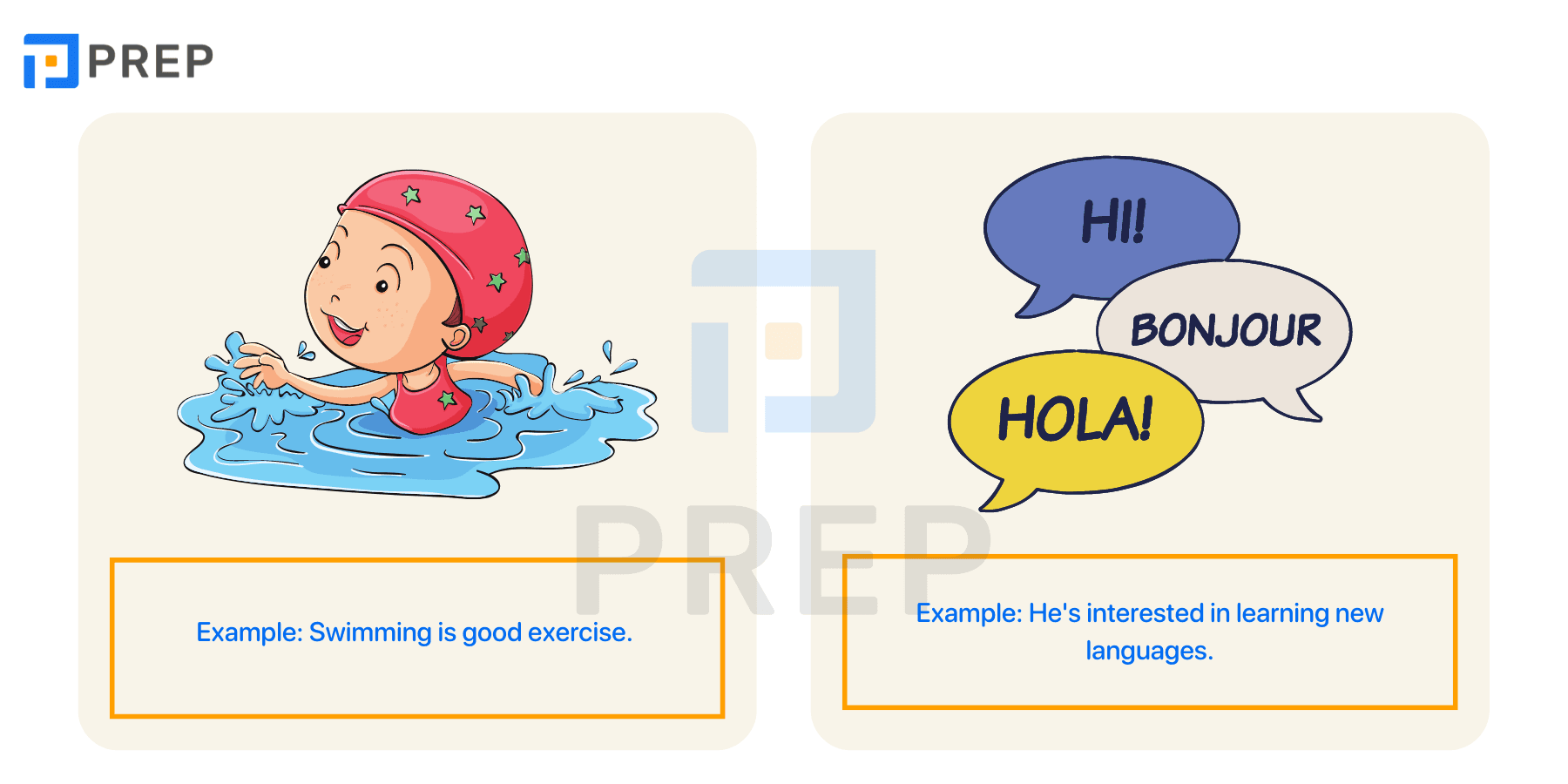
Function
Example
Subject
Swimming is good exercise.
⏩ “Swimming” serves as the subject.
Object
She practiced singing before the performance.
⏩ In this sentence, “singing” is the object of “practice”.
Complement
He's interested in learning new languages.
⏩ In this sentence, “learning new languages” complements “interested in”.
2. V-ing serves as a verb
When used as a verb in English, V-ing often indicates an action in progress or a temporary state and is commonly used in progressive tenses. For example:
- She is swimming in the pool.
- They were playing soccer.
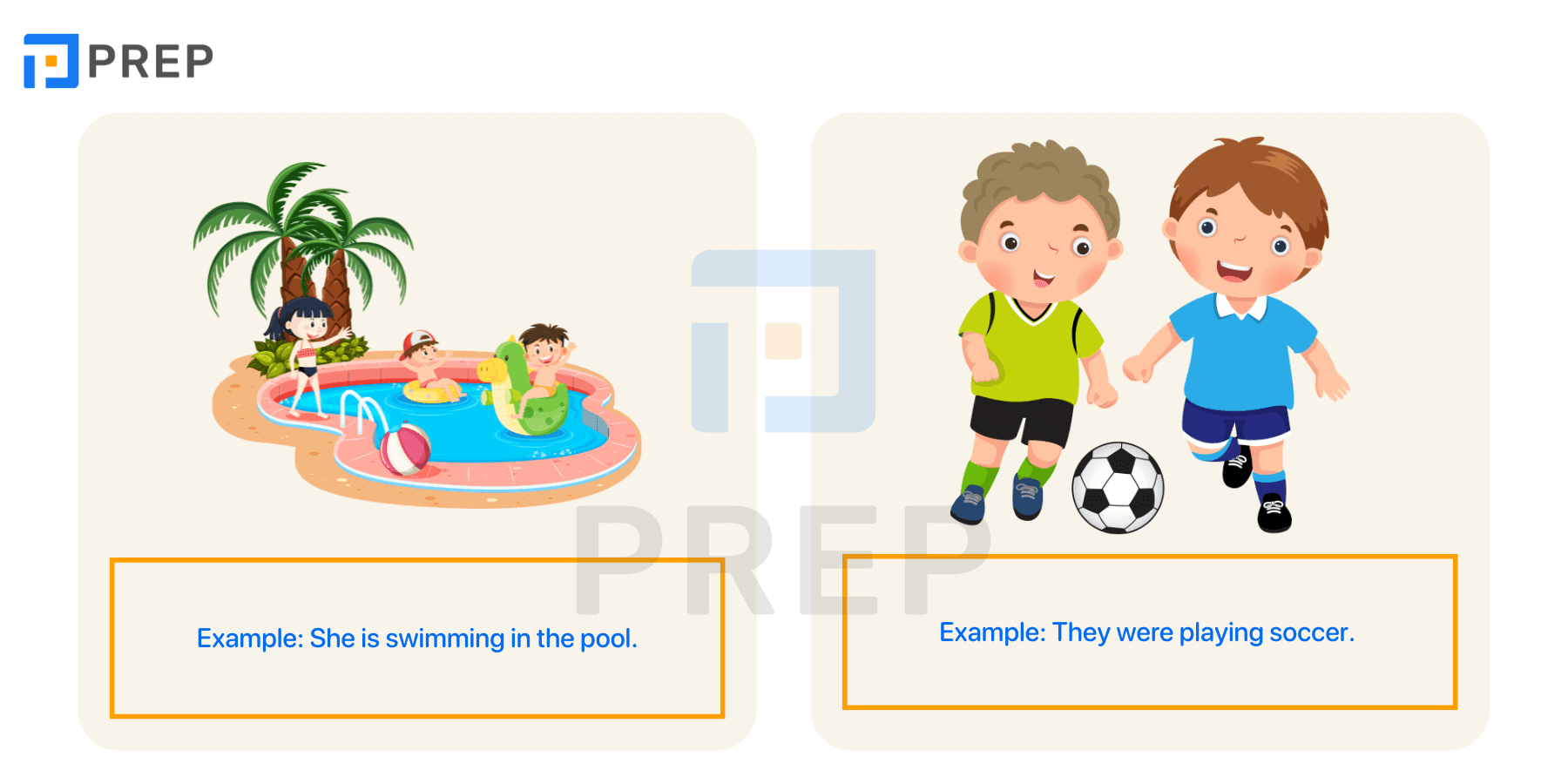
II. What is To V?
Next, let's explore the theory of To V (infinitive verb) with PREP to understand how to use To V and Ving to learn English effectively!
1. Definition
"To Verb" (To V) is a form of a verb created by adding "to" before a base verb. For example:
- Run → To run. For example: Do you know how to run this sort of machinery?
- Sleep → To sleep. For example: You will find that your baby usually goes to sleep after a feed.
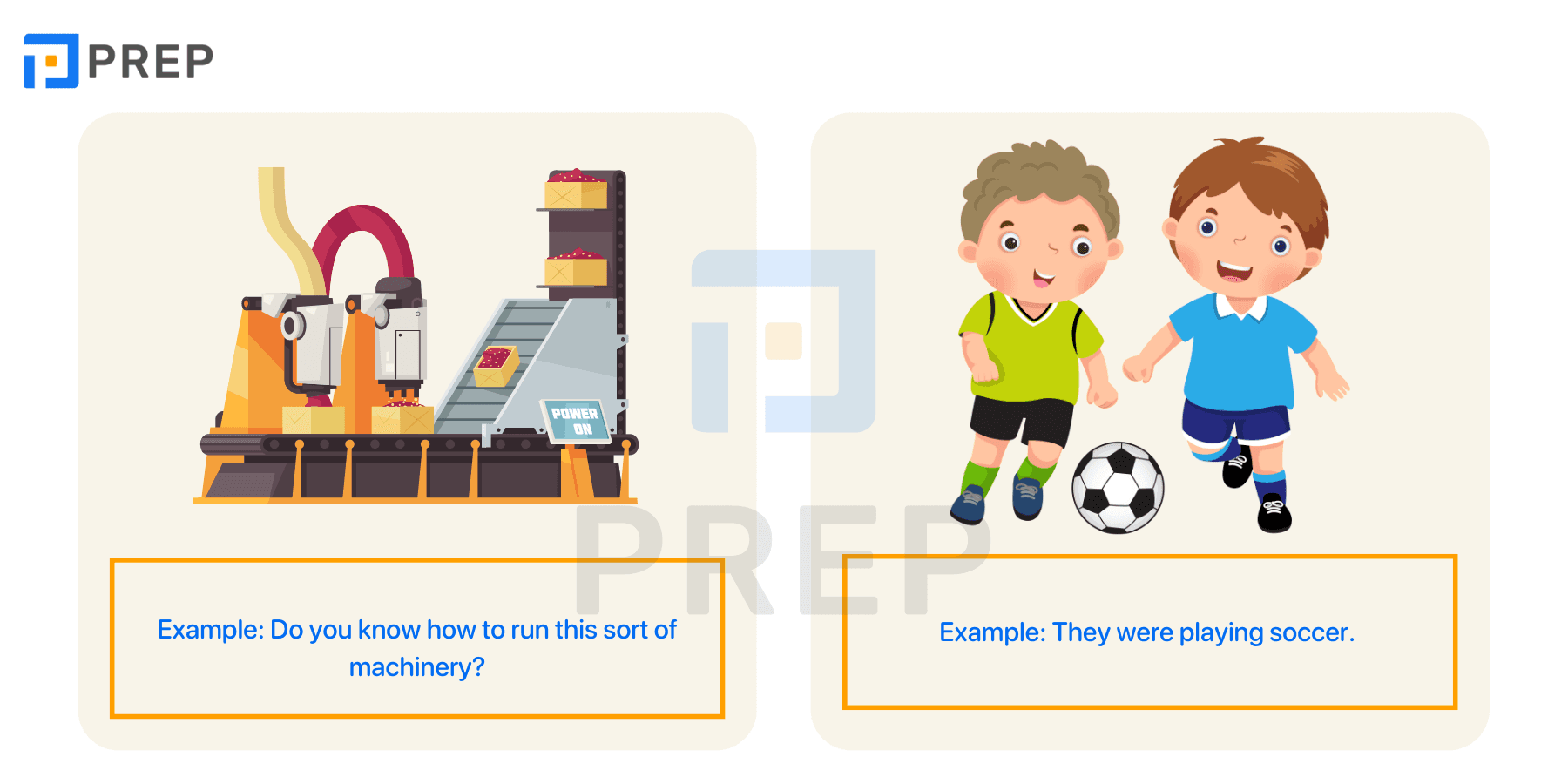
2. Usage
To V is usually used in the following structures
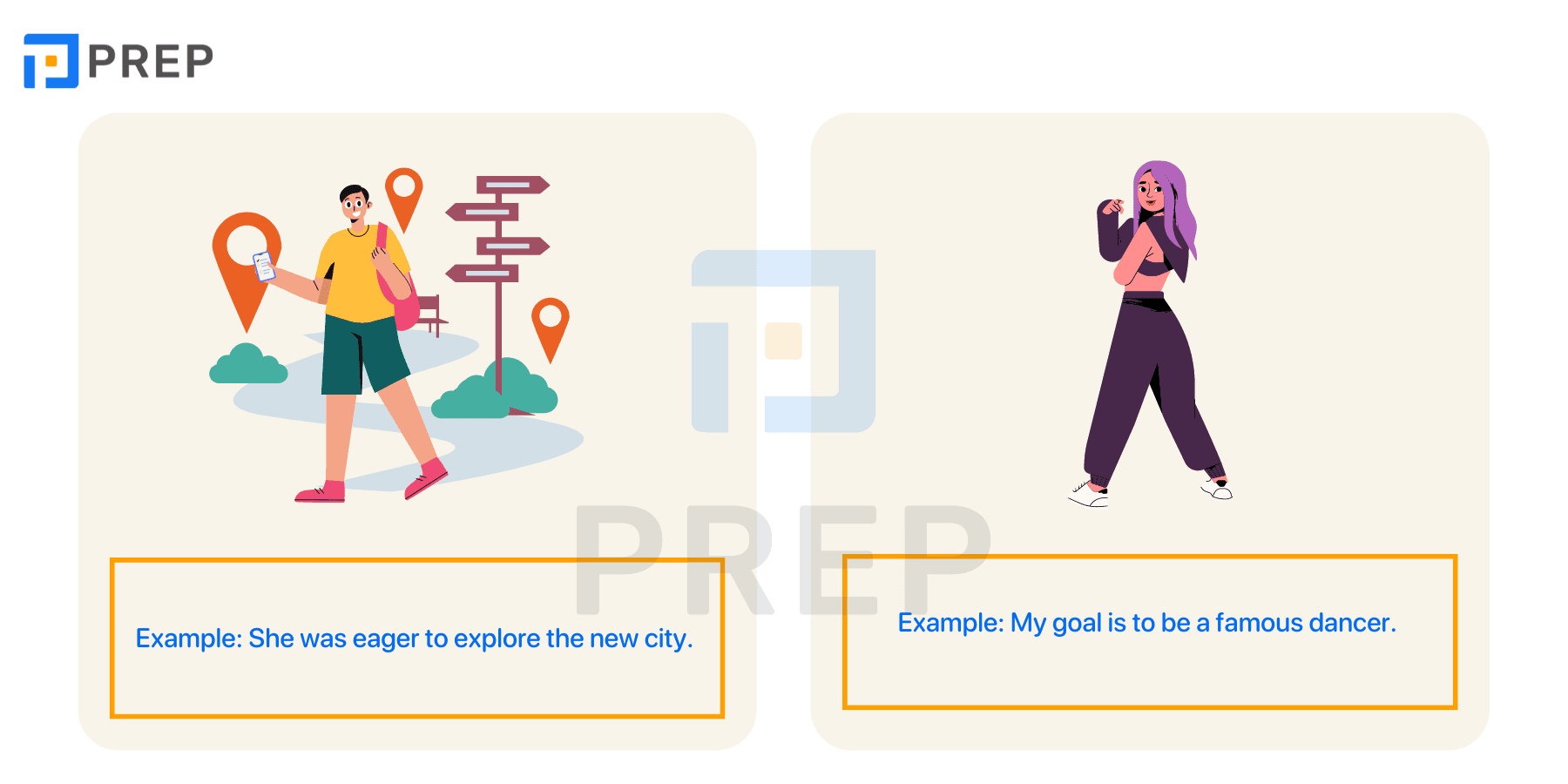
Usage
Example
After some verbs
They want to walk home.
After some nouns
She has the ability to lead the company.
After some adjectives
It is impossible to accomplish this work in one week.
She was eager to explore the new city.
Serve as a subject of sentences
To travel around Europe is her dream.
Serve as an object/complement of sentences
My goal is to be a famous dancer.
III. Verbs that can be used with both To V and Ving
To V and Ving can be combined with the same verbs, but their meanings will differ. Let's explore the verbs that can be used with both To V and Ving in the table below:
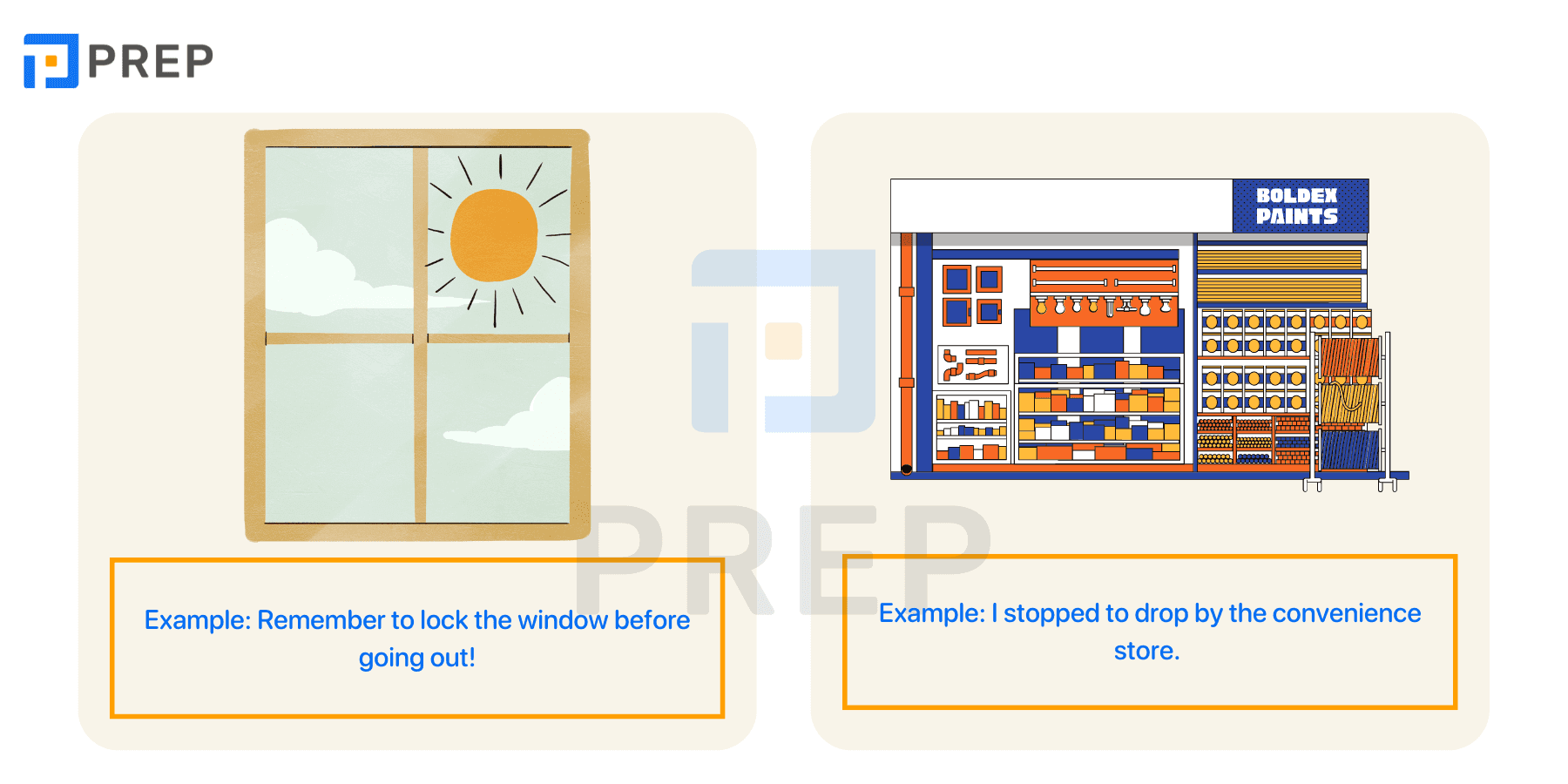
Verb
To V
V-ing
Forget
Meaning: To forget to do something.
Meaning: To forget something that one has done in the past.
For example: Sorry, I forget to close the door.
For example: I never forget being penalized for the first time in a game.
Remember
To remember to do something.
Meaning: To remember something that one has done in the past.
For example: Remember to lock the window before going out!
For example: I remember playing with other children in my neighborhood when I was a child.
Regret
Meaning: To feel sorry for having to do something.
Meaning: To feel regret for having done something.
For example: I regret to announce that you did not pass the test.
For example: She regrets not doing the coursework.
Try
Meaning: To make an effort to do something.
Meaning: To attempt to do something.
For example: With high goals, I try to pass the exam.
For example: She tries playing hockey on the ice.
Be sorry
Meaning: To feel sorry for having to do something.
Meaning: To apologize for having done something.
For example: I am sorry to hear that.
For example: I am sorry for being not good to you.
Sorry
Meaning: To stop one action in order to do another action.
Meaning: To cease or discontinue a particular action.
For example: I stopped to drop by the convenience store.
For example: She stopped working for this corporation last year.
Need
Meaning: To need to do something.
Meaning: To require to be done (= need to be V (past participle)).
For example: He needs to do his housework every day.
For example: The plants need watering.
IV. Exercises on To V and Ving with detailed answers
Let's do some practice exercises below to review the theoretical knowledge of To V and Ving that we have learned!
Exercise: Fill in the correct form of the word: To V or Ving?
- Do they feel like (go)_______ to the theatre on Friday?
- She spent a lot of time (make)_______ a birthday cake for him.
- She agreed (see)_______ me at ten o’clock
- We promised (read) _______our report today
- She suggests (pay) _______by check, it’s safer than cash
- She offered (make) _______dinner for us.
- She put off (see) _______him until very late in the afternoon.
- We refused (pay) _______for the repairs.
- You’ve finished (read)_______ that book at last!
- They decided (go)_______ to the cinema instead
- She enjoyed the play. The (act)_______ was very awesome.
- I love going to my class, her (teach) _______is never boring.
- She’s my favourite writer, her(write) _______is wonderful.
- Her (complain)_______ is getting on my nerves. She’s never happy.
- We have terrible debts. Our (spend) _______is out of control
Answer keys:
1 - going
2 - making
3 - to see
4 - to read
5 - paying
6 - to make
7 - seeing
8 - to pay
9 - reading
10 - to go
11 - acting
12 - teaching
13 - writing
14 - complain
15 - spending
V. From Beginner to Band 7+
If you want to learn tips to IELTS success? Explore these powerful resources below:
- IELTS study: Unlock Your IELTS Success Story!



